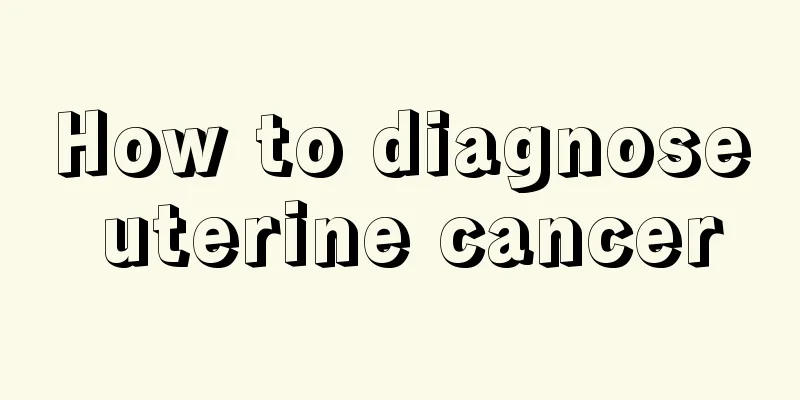What to do if you have gastrointestinal bleeding

|
Gastrointestinal bleeding requires immediate medical attention, especially symptoms such as black stools, vomiting blood, or a drop in blood pressure, which can be life-threatening. Patients should go to the hospital as soon as possible so that the doctor can determine the cause and develop a treatment plan. Gastrointestinal bleeding is often divided into upper gastrointestinal bleeding and lower gastrointestinal bleeding. Upper gastrointestinal bleeding is common in diseases such as gastric and duodenal ulcers, esophageal varicose veins, while lower gastrointestinal bleeding may be related to enteritis, intestinal polyps or cancer. Diagnosis requires gastroscopy, colonoscopy or imaging examinations. Treatment plans vary depending on the cause. Drug therapy such as proton pump inhibitors are suitable for bleeding caused by gastric ulcers, and triple antibiotics are effective when ulcers are caused by Helicobacter pylori infection. For patients with severe bleeding, endoscopic hemostasis (such as injection therapy, thermal coagulation hemostasis or metal clip closure) is a common method, and surgery is mostly used for patients whose lesions cannot be resolved by endoscopic means, such as bleeding caused by gastric perforation or tumors. Blood transfusions can also be used to restore blood volume and correct anemia. Gastrointestinal bleeding is often divided into upper gastrointestinal bleeding and lower gastrointestinal bleeding. Upper gastrointestinal bleeding is common in diseases such as gastric and duodenal ulcers, esophageal varicose veins, while lower gastrointestinal bleeding may be related to enteritis, intestinal polyps or cancer. Diagnosis requires gastroscopy, colonoscopy or imaging examinations. Treatment plans vary depending on the cause. Drug therapy such as proton pump inhibitors are suitable for bleeding caused by gastric ulcers, and triple antibiotics are effective when ulcers are caused by Helicobacter pylori infection. For patients with severe bleeding, endoscopic hemostasis (such as injection therapy, thermal coagulation hemostasis or metal clip closure) is a common method, and surgery is mostly used for patients whose lesions cannot be resolved by endoscopic means, such as bleeding caused by gastric perforation or tumors. Blood transfusions can also be used to restore blood volume and correct anemia. Patients need to pay attention to dietary conditioning and changes in lifestyle habits. For example, avoid spicy and irritating foods, especially those with a history of stomach problems. The diet should be light and easy to digest. Soft rice, egg custard, and porridge are recommended. Smokers and alcoholics must quit smoking and drinking in time to reduce the risk of re-bleeding. If you take anticoagulant and anti-inflammatory drugs for a long time, you should consult a doctor to adjust the medication plan. Regular checkups are also required during the recovery period after the illness to detect potential problems and treat them in time. |
<<: What is the reason why a ten-year-old child gets bone cancer
>>: Will CT diagnose early lung cancer as pneumonia?
Recommend
How to wipe the table without dust?
Every family has a table. You will find that afte...
Sinusitis and runny nose need to be treated like this
Sinusitis is a very common disease in daily life,...
What are the dangers of low skeletal muscle?
From a clinical perspective, low skeletal muscle ...
How to wear clothes well with a fat belly
Temperament is often more important than appearan...
Liquid foundation suitable for oily skin with acne marks
Everyone should be familiar with oily skin, which...
Right lower jaw hurts and there is a lump when pressing
When there is a problem with the oral cavity, you...
How to use the moxibustion box?
Moxibustion is very familiar to many people, and ...
What is the schedule for baby's vaccinations?
Babies need to be vaccinated shortly after birth,...
Disinfectant coupling agent
Disinfection coupling agent is a medical disinfec...
Why do I feel hot and sweaty in my lower back after urinating in the middle of the night?
Perhaps people will experience such a phenomenon ...
Which one is better for anti-wrinkle effect, loofah or ginkgo?
When people reach a certain age, their skin will ...
Several common examination methods for nasopharyngeal carcinoma
The clinical examination of nasopharyngeal carcin...
Will tongue cancer endanger the patient's life?
Will tongue cancer endanger the patient's lif...
How does ultrasound examination help liver cancer treatment? Introduction to the role of ultrasound examination for liver cancer
How can ultrasound examination help in the treatm...
Secret to storing winter melon
A winter melon is usually very large, and usually...









